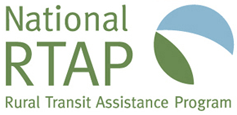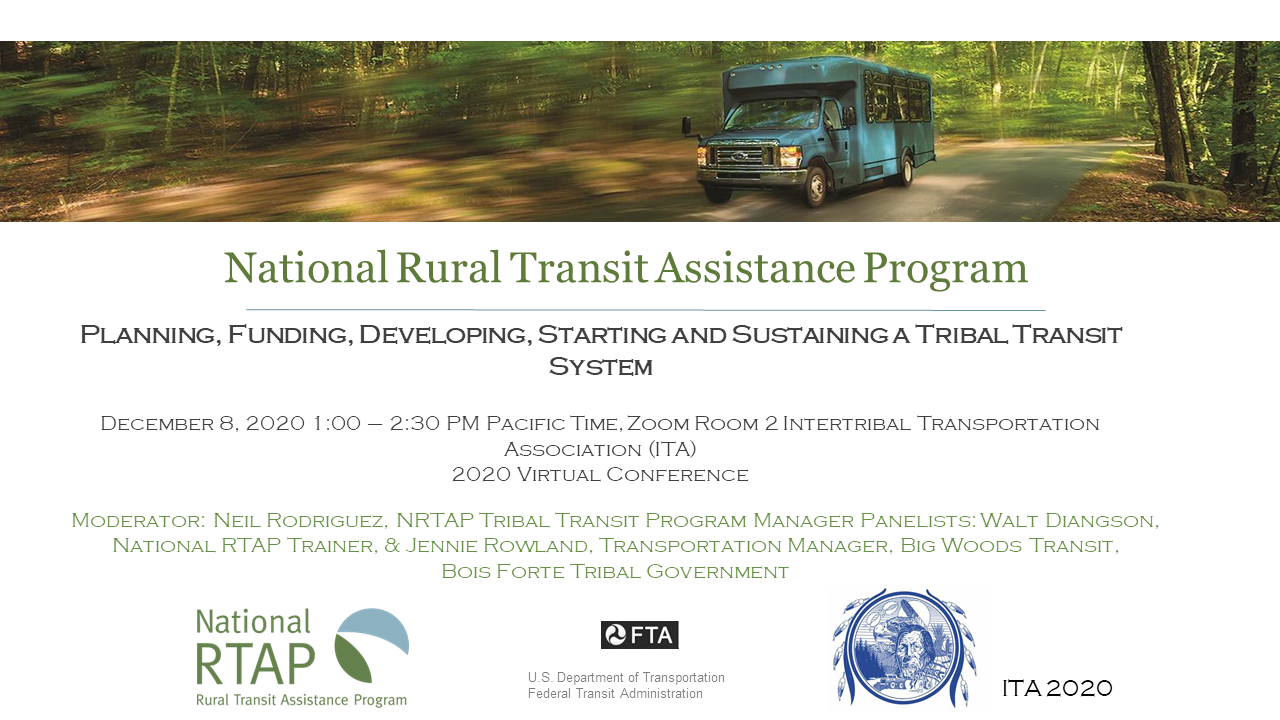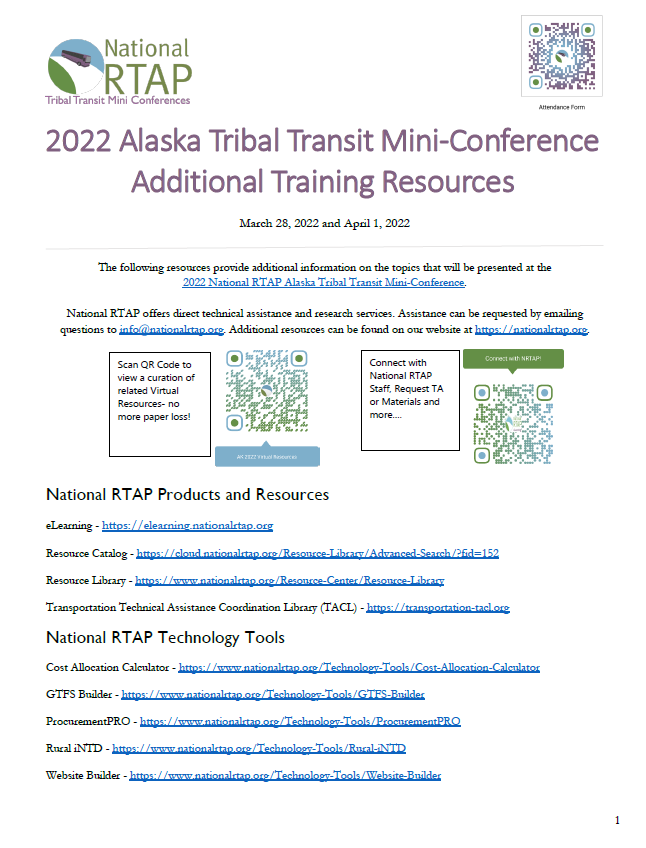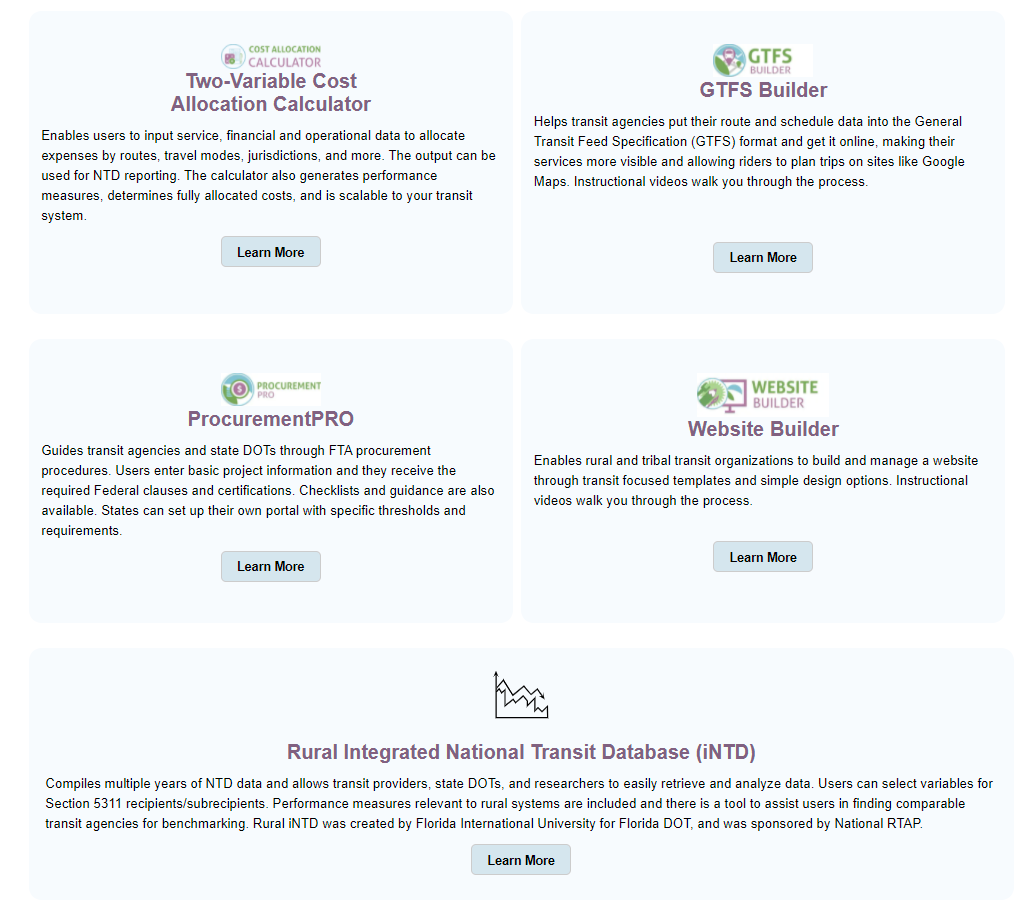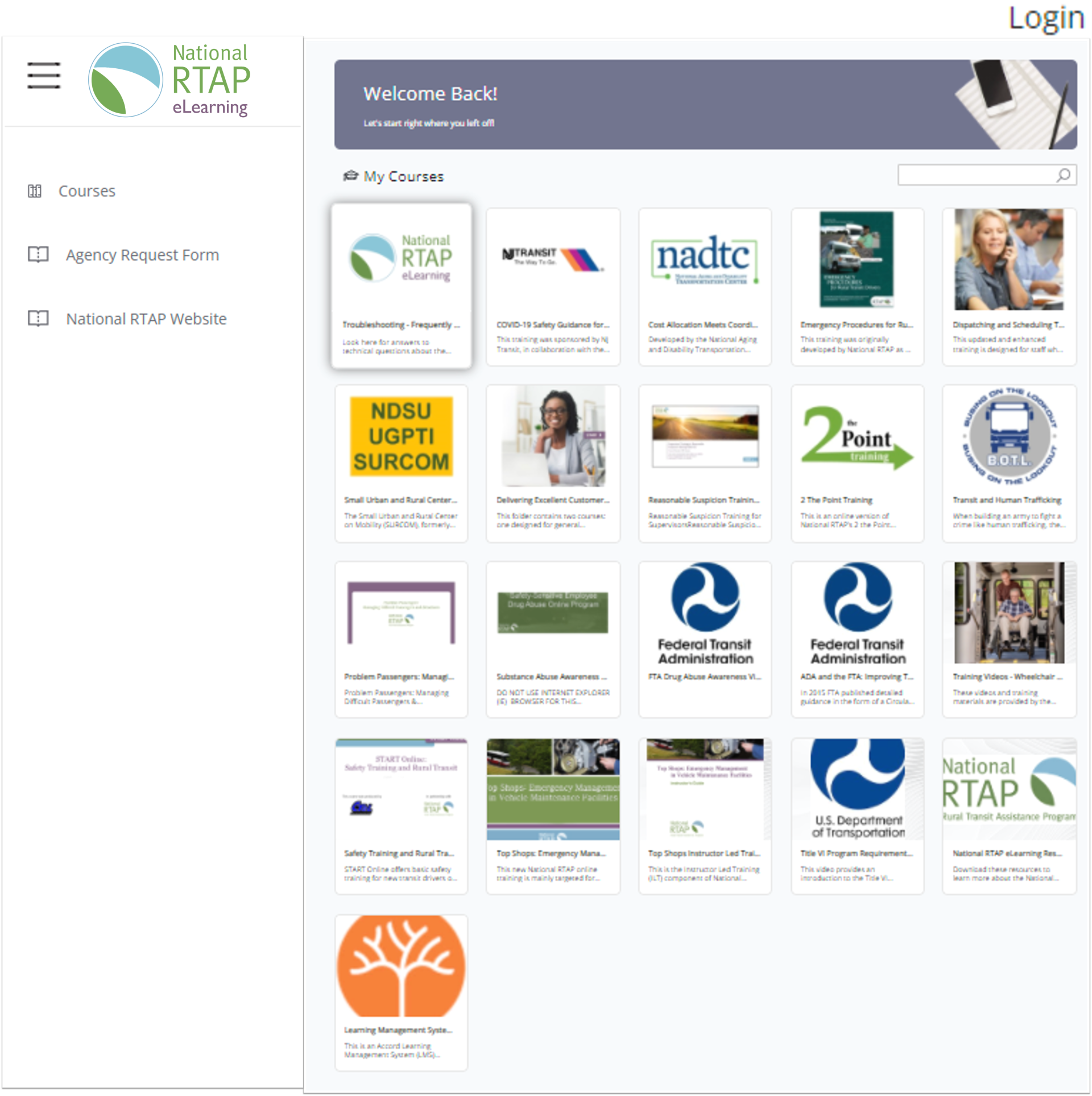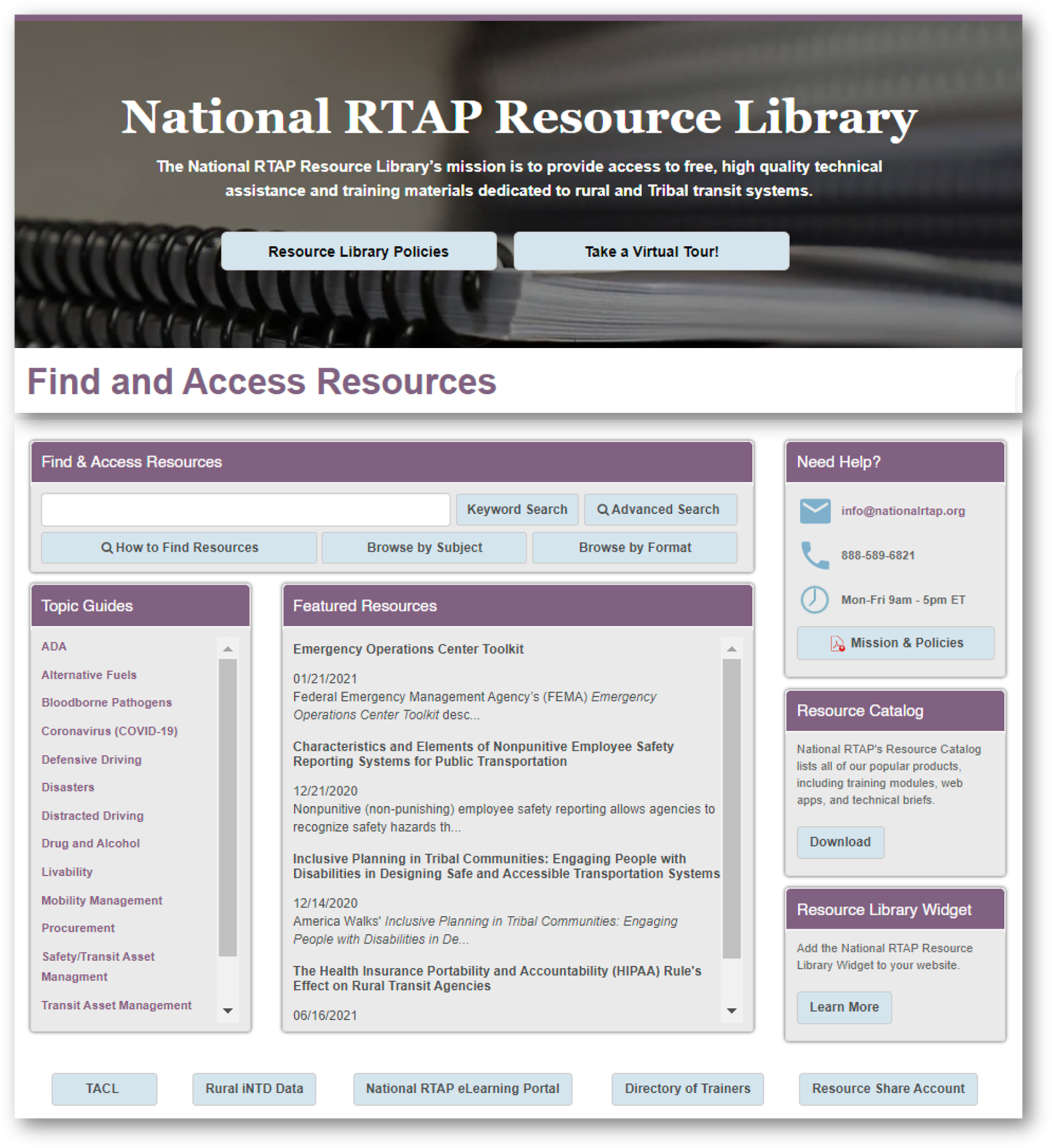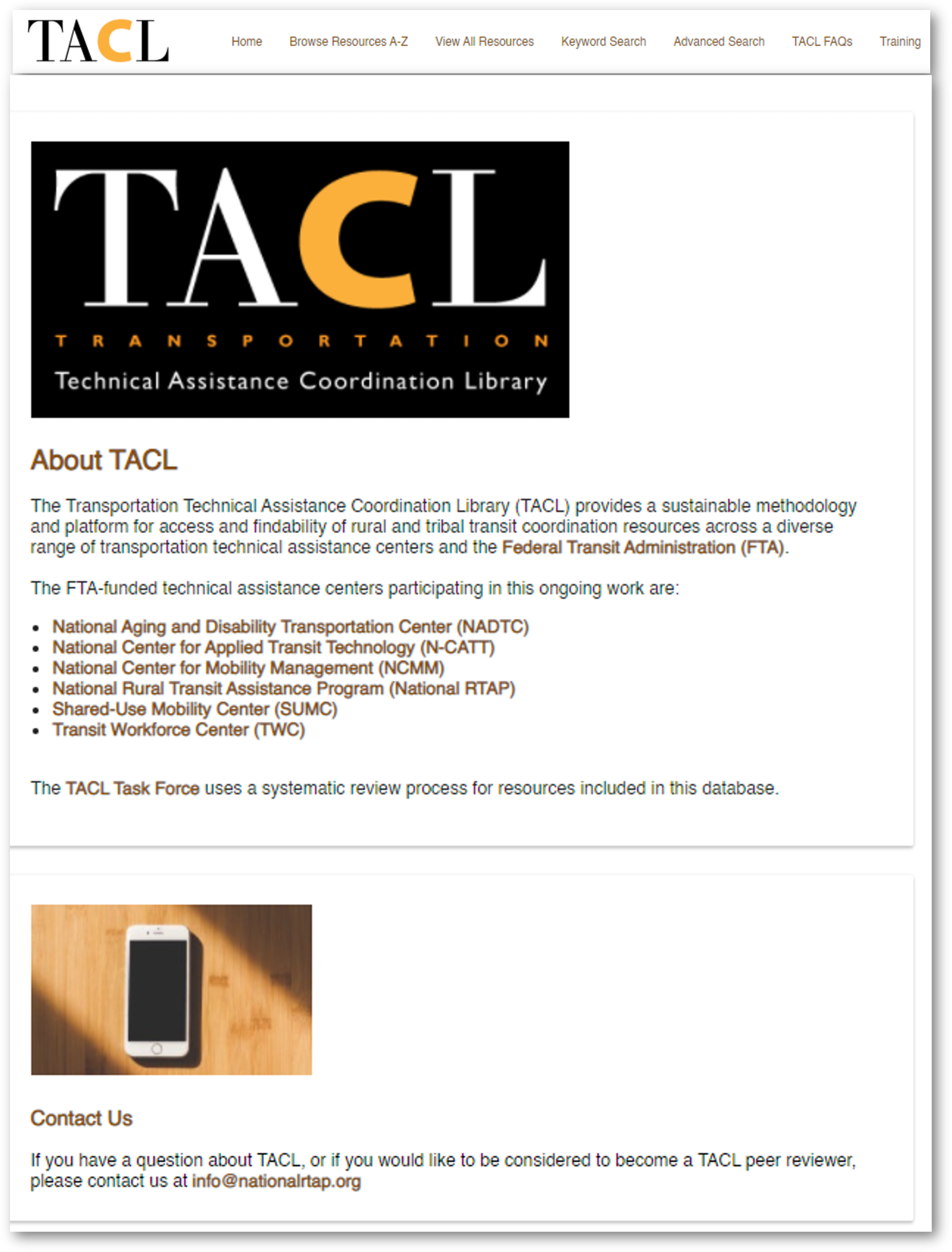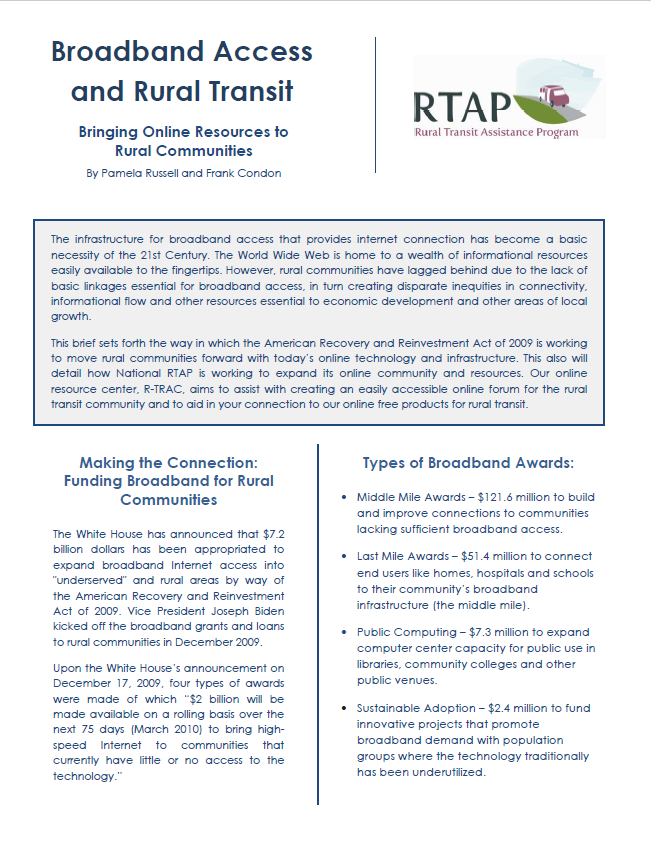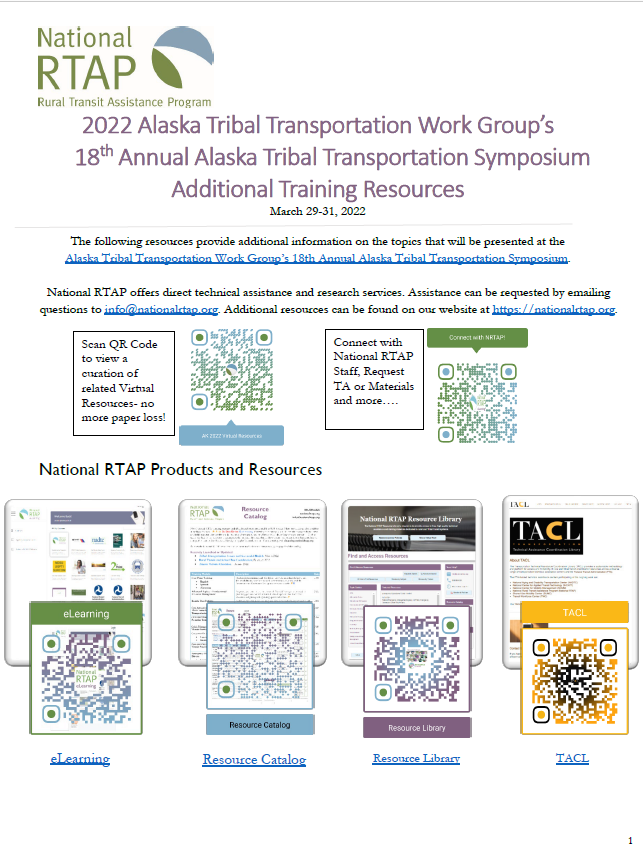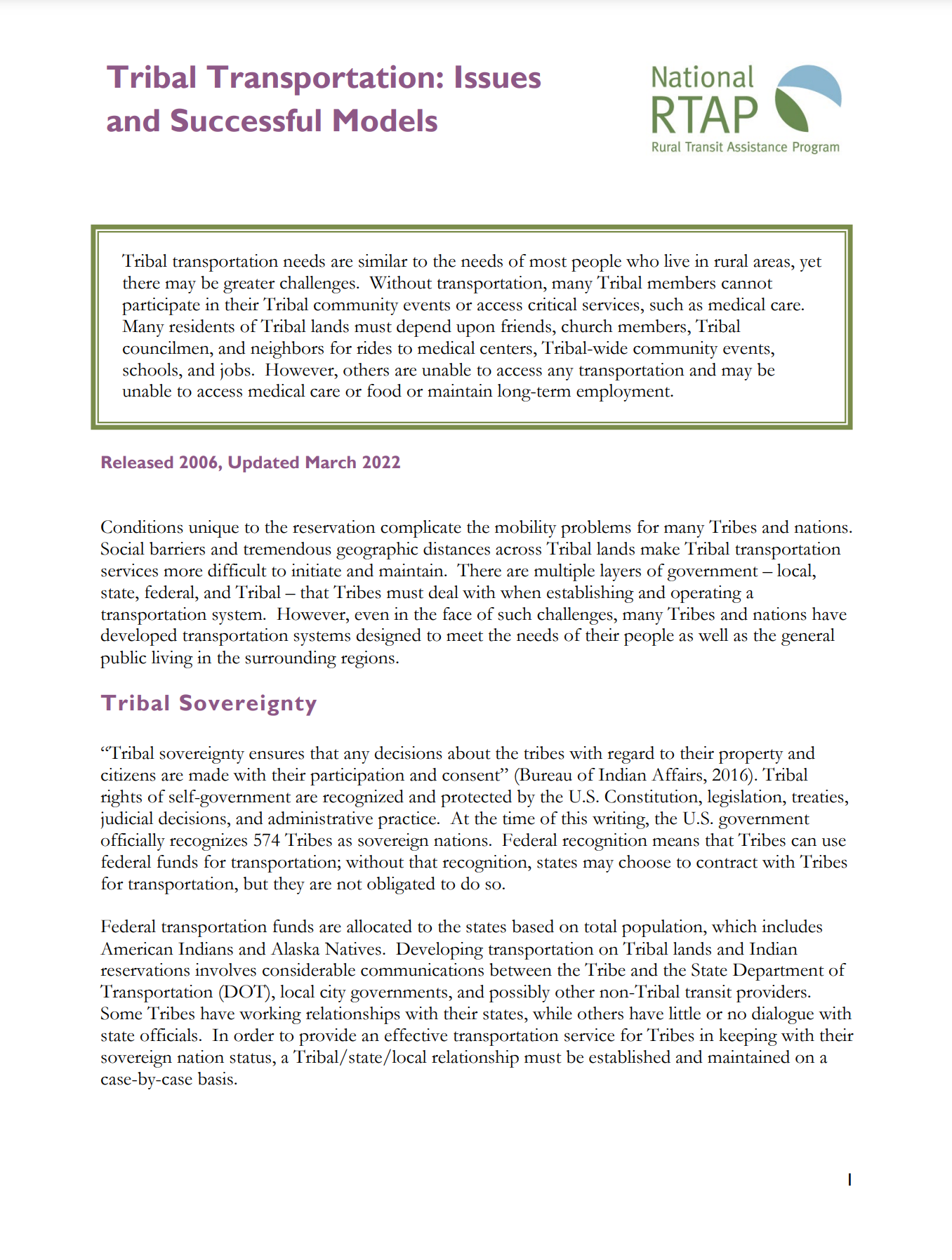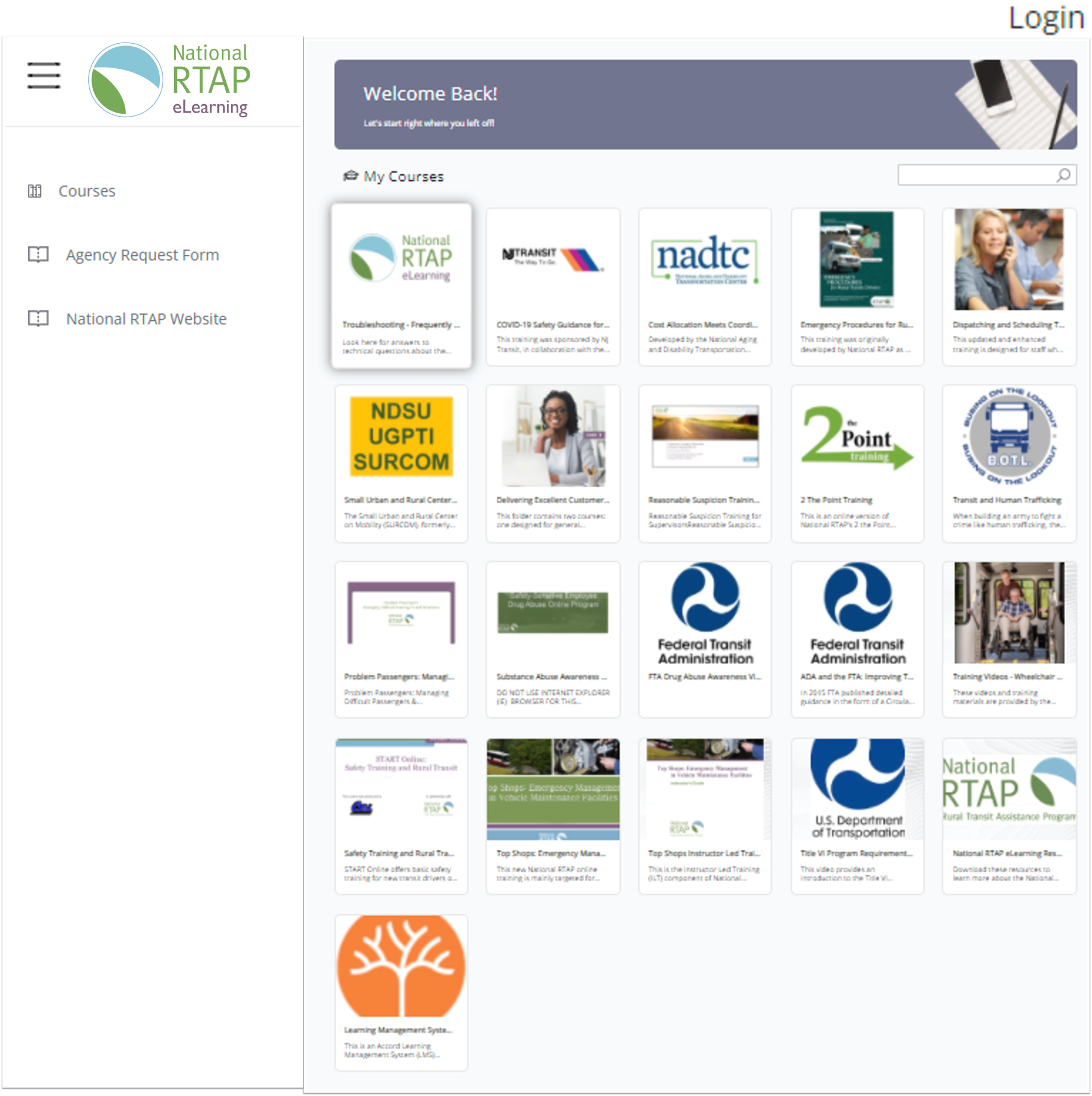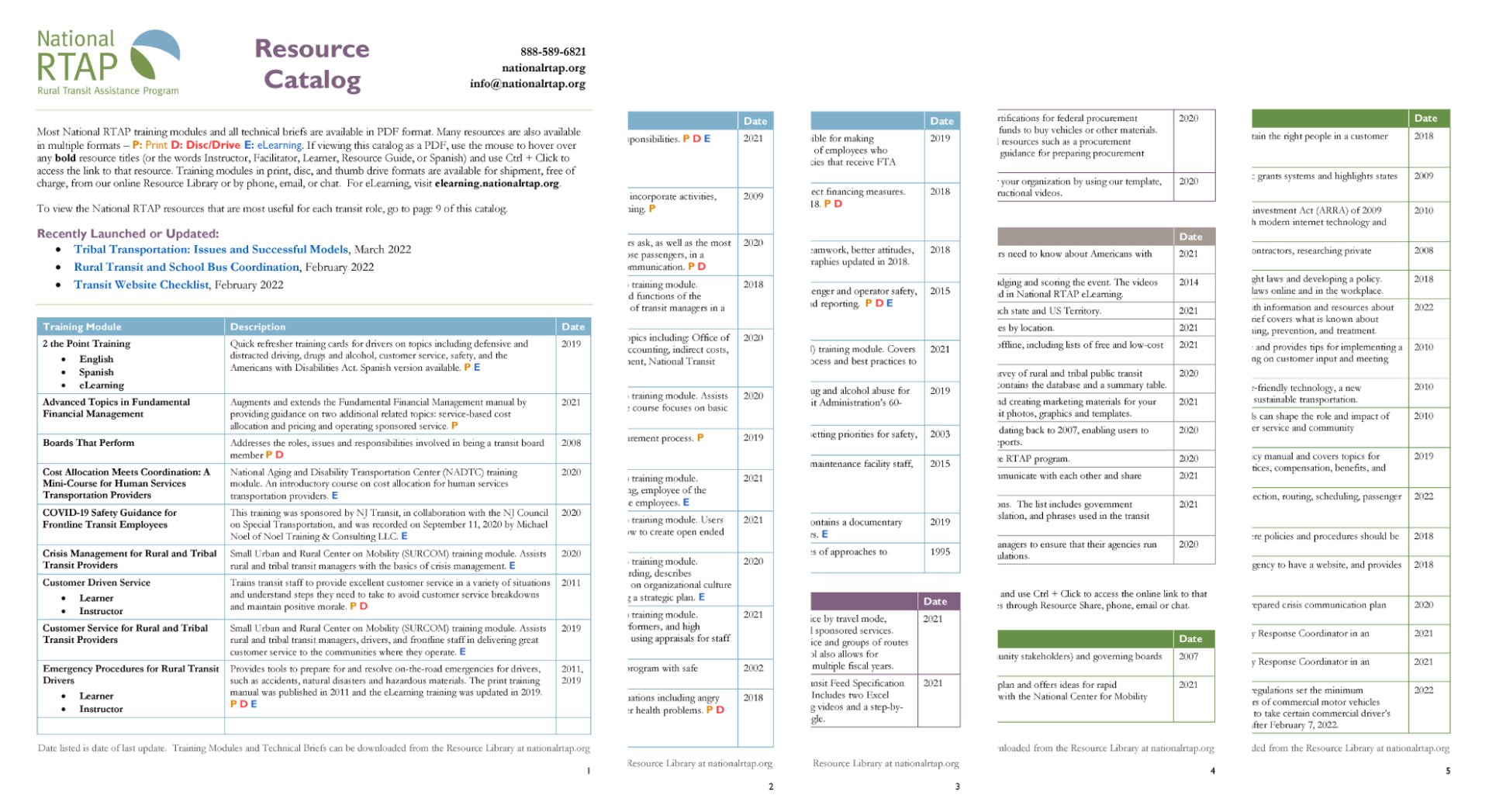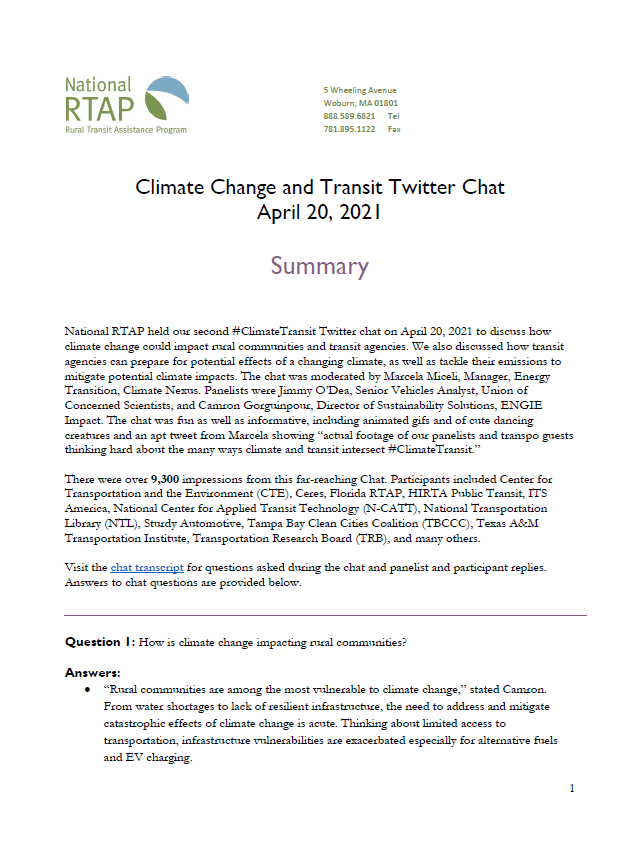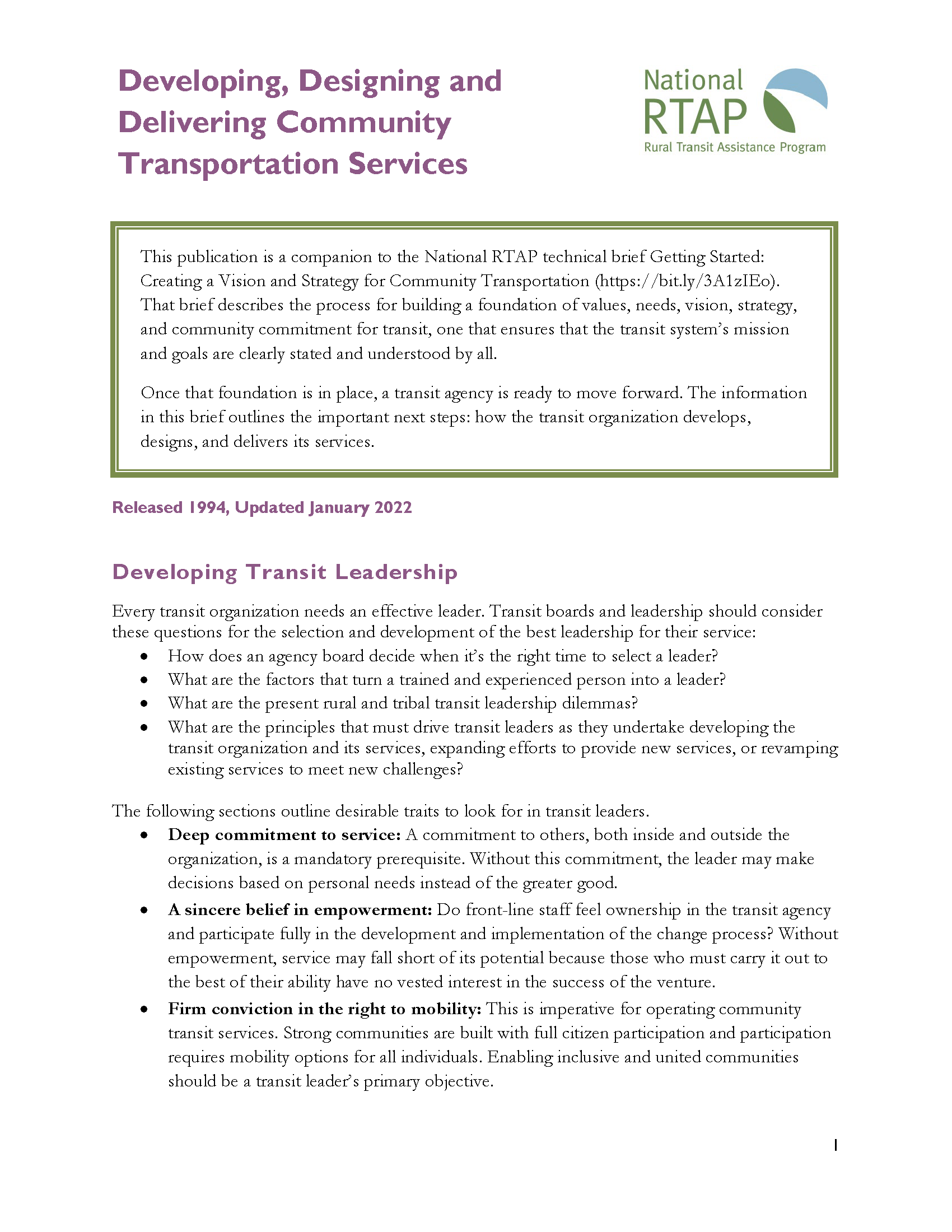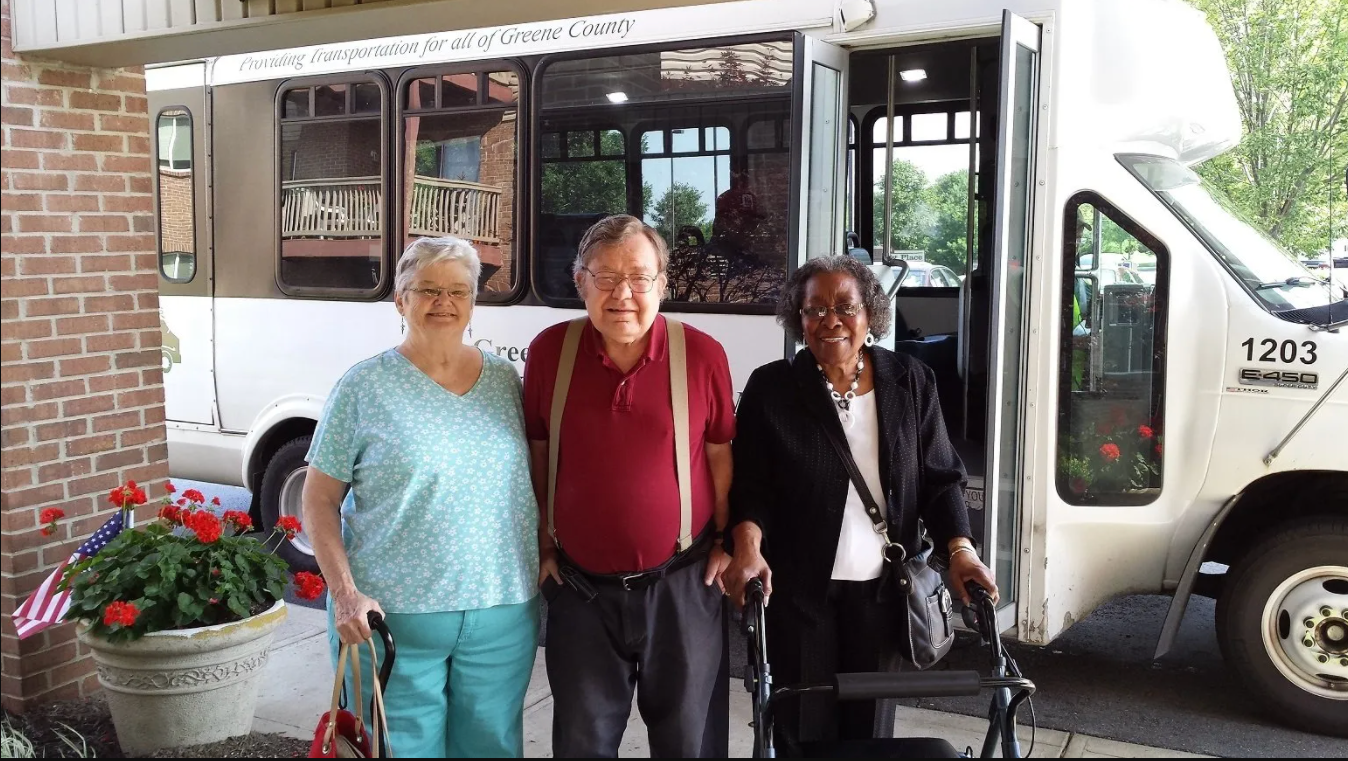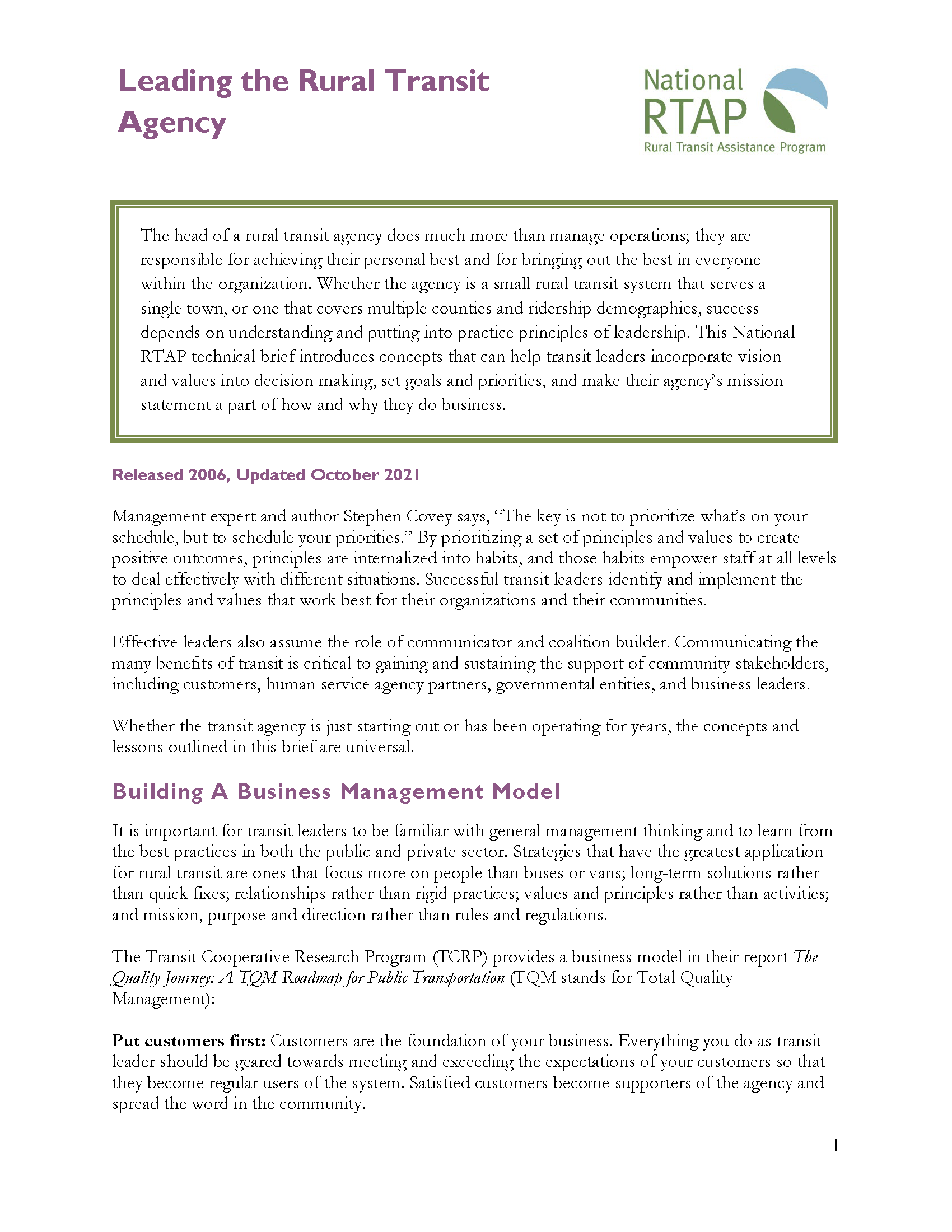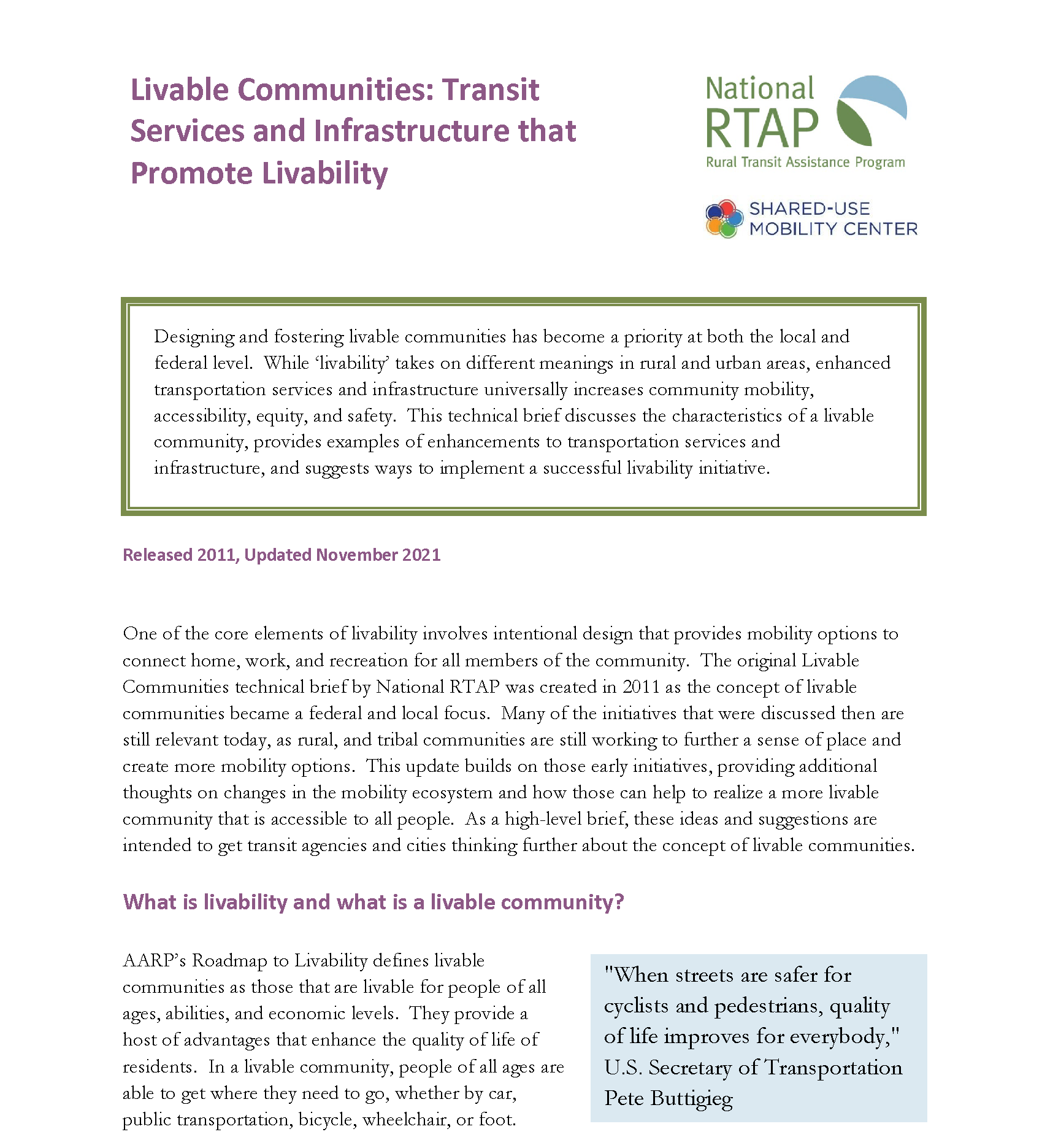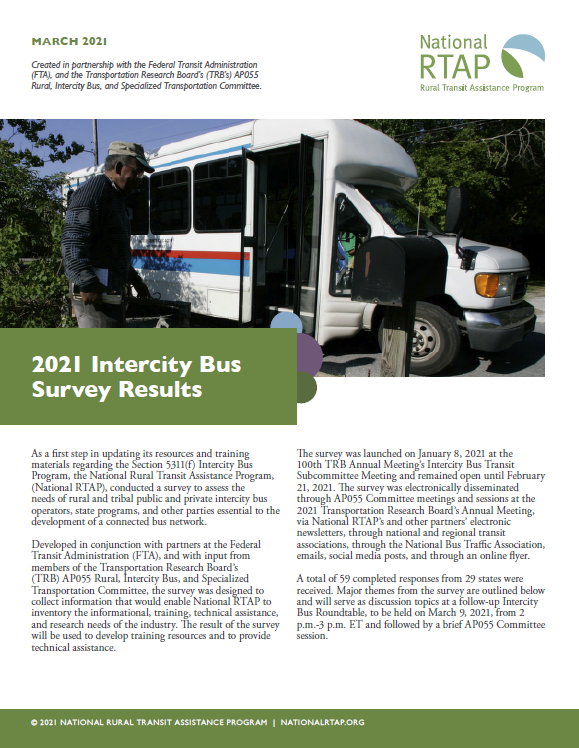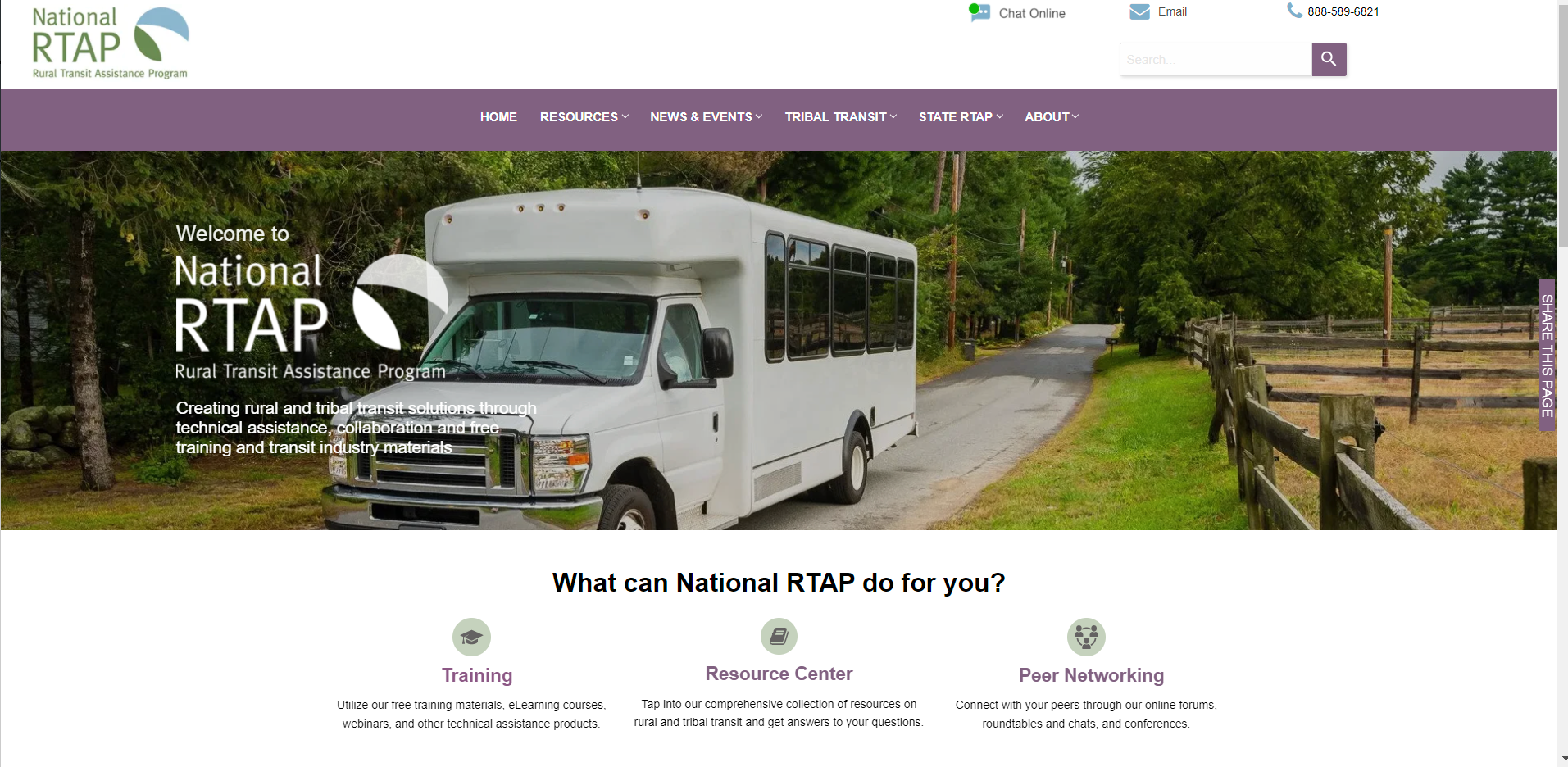National RTAP 2022 Alaska Tribal Transit
Mini-Conference
VIRTUAL RESOURCE BOOTH
Did you miss anything at the National RTAP Tribal Transit Mini Conference or our vendor booth at the Alaska Tribal Transportation Work Group Symposium? Here's another opportunity to take the knowledge home with you!
-
Planning, Funding, Developing, Starting and Sustaining a Tribal Transit System
ButtonSouth West Transit Association Lead Trainer Walt Diangson and Bois Forte Public Transportation Manager and former National RTAP Review Board Chair Jennie Rowland presented on Planning, Funding, Developing, Starting, and Sustaining a Tribal Transit System at the Intertribal Transportation Association (ITA) 2020 Virtual Meeting on December 8, 2020.
-
2022 Alaska Tribal Transit Mini-Conference Additional Training Resources
ButtonThe following resources provide additional information on the topics that will be presented at the 2022 National RTAP Alaska Tribal Transit Mini-Conference.
-
Technology Tools Overview
ButtonNational RTAP has the following free tools to help your transit organization. Some are web-based and some are downloadable Microsoft Excel or Access files.
- Two-Variable Cost Allocation Calculator
- GTFS Builder
- ProcurementPRO
- Website Builder
- Rural Integrated National Transit Database (iNTD)
-
National RTAP eLearning Portal
ButtonSelf-guided, online courses where learner progress and scores can be tracked and documented by managers in the portal.
-
National RTAP Resource Library
ButtonThe National RTAP Resource Library’s mission is to provide access to free, high quality technical assistance and training materials dedicated to rural and Tribal transit systems.
The Transportation Technical Assistance Coordination Library (TACL)
The Transportation Technical Assistance Coordination Library (TACL) provides a sustainable methodology and platform for access and findability of coordination resources across a diverse range of transportation technical assistance centers and the Federal Transit Administration (FTA). TACL was launched in January 2021 and is available at no cost.
The Alaska Tribal Transportation Work Group 18th Annual Symposium
VIRTUAL RESOURCE BOOTH
Did you miss anything at the ATTWG's 18th Symposium Vendor booth? Here's another opportunity to take the knowledge home with you!
-
Broadband Access and Rural Transit: Bringing Online Resources to Rural Communities
ButtonThis National RTAP technical brief, Broadband Access and Rural Transit: Bringing Online Resources to Rural Communities, discusses the way in which the American Recovery and Reinvestment Act (ARRA) of 2009 works to move rural communities forward with modern internet technology and infrastructure.
-
18th Annual Alaska Tribal Transportation Symposium Additional Training Resources
ButtonThe following resources provide additional information on the topics that will be presented at the Alaska Tribal Transportation Work Group’s 18th Annual Alaska Tribal Transportation Symposium.
-
Tribal Transportation: Issues and Successful Models
ButtonThis Technical Brief raises some of the important issues faced by Tribes in implementing and managing transportation services, such as funding, reporting, and coordination, and provides several case studies of successful Tribal transportation programs. The brief was released in 2006 as American Indian Transportation: Issues and Successful Models, and updated in 2022.
-
National RTAP eLearning Portal
ButtonThe National RTAP eLearning portal is an online Learning Management System (LMS) that hosts National RTAP training modules. Similar to the traditional training guides and discs, the online training modules are provided at no cost for rural and tribal transit providers.
-
National RTAP Resource Catalog
ButtonAn abstracted list of all National RTAP products available for ordering or online use. Search for desired resources in the Resource Library to order or use online.
NRTAP Climate Change and Transit Twitter Chat Summary April 20, 2021
National RTAP held our second #ClimateTransit Twitter chat on April 20, 2021 to discuss how
climate change could impact rural communities and transit agencies. We also discussed how transit
agencies can prepare for potential effects of a changing climate, as well as tackle their emissions to
mitigate potential climate impacts.
Additional National RTAP Resources
VIRTUALLY ACCESSIBLE
-
Developing, Designing and Delivering Community Transportation Services.
ButtonThis National RTAP Technical Brief is a companion to the technical brief Getting Started: Creating a Vision and Strategy for Community Transportation. That preliminary document describes the process for building a foundation of values, needs, vision, strategy and community commitment for transit, one that ensures that the transit systems mission and goals are clearly stated and understood by all. The information in this technical brief outlines the important next steps: how the transit organization develops, designs and delivers its services. Developing, Designing and Delivering Community Transportation Services was originally created in 1994 and updated in 2022.
-
Sharing Training with Agencies Coordinating Transportation
ButtonAccording to the National Center for Mobility Management (NCMM), “Coordinated transportation services are achieved when multiple entities work together in delivering one or more components of a transportation service so they can increase their capacity to provide trips.” Coordinating transit planning efforts with human services transportation and other types of service can reduce the burden of planning efforts and combine the development of several separate plans into a single combined plan. Like transportation coordination itself, sharing training practices and resources among agencies in a coordinated system will take time and commitment. But giving the time and commitment to proper training is worth the effort.
-
Leading the Rural Transit Agency
ButtonThis National RTAP Technical Brief from the John Martin Series introduces concepts that will help transit leaders incorporate vision and values into decision-making, set goals and priorities, and make their agency’s mission statement a part of how and why they do business. The tech brief was launched in 2009 and updated in 2021.
-
Livable Communities:Transit Services and Infrastructure that Promote Livability
ButtonThis National RTAP/SUMC Technical Brief, Livable Communities: Transit Services and Infrastructure that Promote Livability, discusses the characteristics of a livable community, provides specific examples of enhancements to transportation services and infrastructure, suggests ways to implement a successful livability initiative, and presents grant opportunities.
-
2021 Intercity Bus Survey Results
ButtonAs a first step in updating its resources and training materials regarding the Section 5311(f) Intercity Bus Program, the National Rural Transit Assistance Program, (National RTAP), conducted a survey to assess the needs of rural and tribal public and private intercity bus operators, state programs, and other parties essential to the development of a connected bus network. Developed in conjunction with partners at the Federal Transit Administration (FTA), and with input from members of the Transportation Research Board’s (TRB) AP055 Rural, Intercity Bus, and Specialized Transportation Committee, the survey was designed to collect information that would enable National RTAP to and research needs of the industry. The result of the survey will be used to develop training resources and to provide technical assistance.
Writing a Coordinated Public Transit Human Services Transportation Plan
A Coordinated Public Transit Human Services Transportation (HST) Plan is an important tool for community transportation planning. HST plans create a systematic way for communities to improve collaboration and communication across human service organizations and transportation providers – plans can improve access, efficiency, and effectiveness of community transportation systems. Although the process can seem daunting, the end-results are important. This technical brief summarizes the key steps in developing an HST Plan. National RTAP, the National Center for Mobility Management (NCMM), and the National Aging and Disability Transportation Center (NADTC) collaborated to update this brief.

National RTAP offers one-stop shopping for rural and tribal transit technical assistance products and services. Call, email, or chat with us and if we can’t help with your request, we’ll connect you with someone who can!
" National RTAP offers one-stop shopping for rural and tribal transit technical assistance products and services. Call, email, or chat with us and if we can’t help with your request, we’ll connect you with someone who can! "
Robin Phillips, Executive Director
" You go above and beyond and I wanted to let you know that I appreciate it so much and always enjoy my time with you. The presentations give me so much to bring back to my agency and my subrecipients. "
Amy Rast, Public Transit Coordinator Vermont Agency of Transportation (VTrans)
" I always used the CASE (Copy And Steal Everything) method to develop training materials until I discovered RTAP. They give it to you for free. Use it! "
John Filippone, former National RTAP Review Board Chair
" National RTAP provides an essential service to rural and small transit agencies. The products are provided at no cost and help agencies maximize their resources and ensure that their employees are trained in all aspects of passenger service. "
Dan Harrigan, Former National RTAP Review Board Chair
" We were able to deploy online trip planning for Glasgow Transit in less than
90 days using GTFS Builder. Trip planning information displays in a riders'
native language, which supports gencies in travel training and meeting Title VI
mandates. "
Tyler Graham, Regional Transportation Planner Barren River Area Development District
Slide title
" Having a tool like GTFS Builder is really light years ahead of what it used to be at one time in terms of how fast you can put everything together. Our university students really can't imagine transit without it, so I think it's very important for us in terms of attracting that particular demographic. "
Michael Lachman, Transportation Services Manager HAPCAP - Athens Transit
Slide title
" In the past we used proprietary database software that was very challenging, very murky, and hard to update. GTFS Builder is a great opportunity to make this more user-friendly, more readily updatable and it
would enable us to show how to create a GTFS to more of the staff. "
Jaime McKay, Former Manager of Direct Services Center for Mobility Equity
Slide title
" Collaboration is a buzz word these days in the industry. On behalf of our Tribal segment, I appreciate RTAP for making Tribes a partner in industry opportunities. The organization goes over and beyond reaching partners one would not expect in a busy industry such as public transportation. Thank you for your tireless efforts! "
Franklin Akoneto, Comanche Nation
Slide title
"We are so very thankful for all your transportation training materials. Your resources are as valuable as gold!"
Holly Walton, Transportation Assistant Manager, Curative Connections
A program of the Federal Transit Administration administered by the Neponset Valley TMA
National RTAP is committed to making this website accessible to persons with disabilities. If you need assistance accessing any content on our website or need alternative formats for our materials, please contact us at info@nationalrtap.org or 781-404-5020.
by National RTAP |
